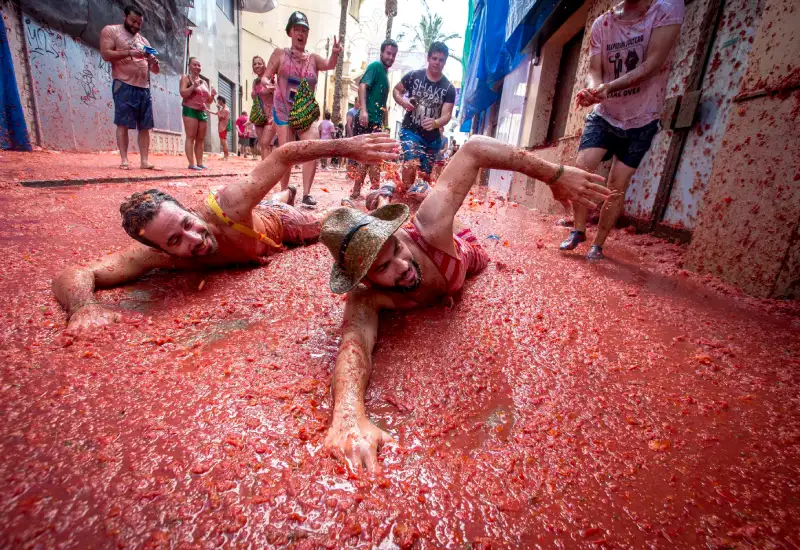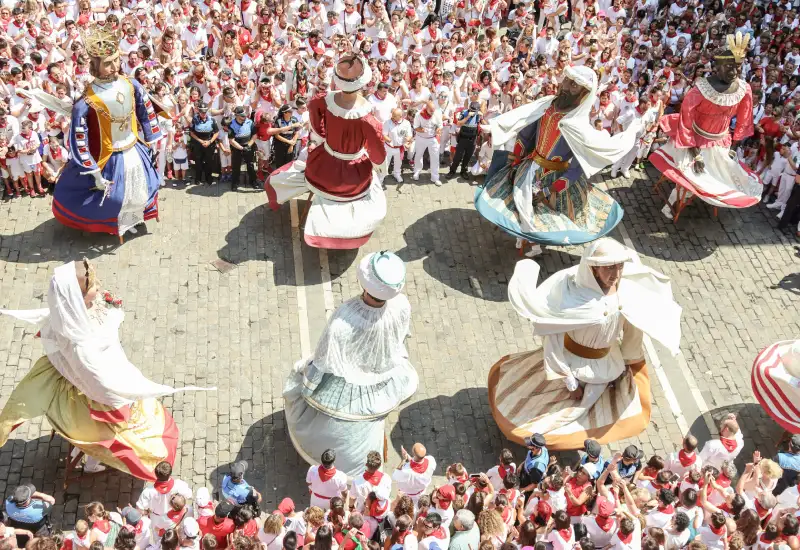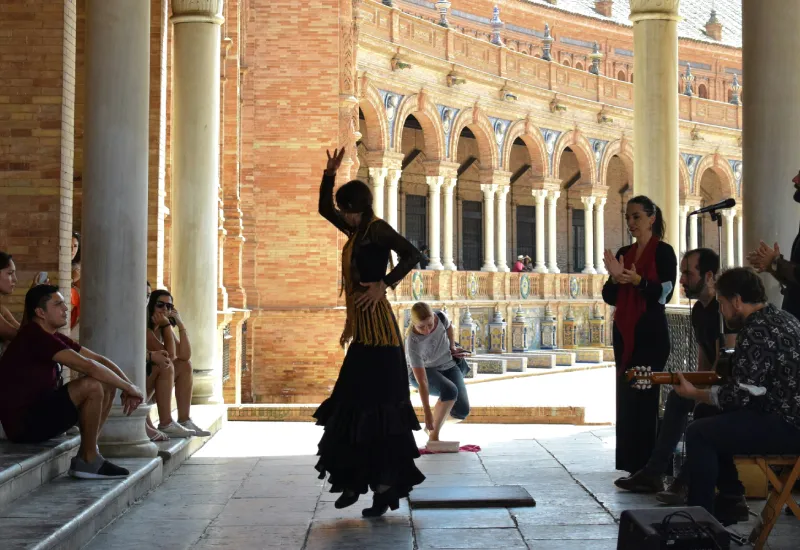When we think of Spain, vibrant festivals, flavorful cuisines, and rich history come to mind. Spanish culture is a beautiful tapestry of traditions, art, and values that captivate tourists worldwide. But what is typical Spanish culture? What makes it so popular? In this guide, we’ll delve into the heart of Spanish culture, exploring its values, traditions, and what makes it an unforgettable experience for any visitor. Prepare to be enchanted by the rhythm of Flamenco, the aroma of paella, and the timeless beauty of Spain’s landscapes.
What Is Typical Spanish Culture?
A mix of historical influences, strong family ties, and a passion for life characterize typical Spanish culture. Here are some key elements:
Flamenco Dance and Music
Flamenco, a soulful expression of Spanish culture, combines dance, guitar, and singing. Originating in Andalusia, this art form has become a global symbol of Spain.

The intricate footwork, heartfelt singing, and rhythmic clapping create an electrifying atmosphere transcending language. Attending a Flamenco show in Seville is a must for tourists who wish to experience this vibrant tradition firsthand.
The spirit of Flamenco, often described as “Duende”—a mysterious force of inspiration—reminds us of the raw beauty of human emotion.
Spanish Cuisine
Spanish cuisine is another cornerstone of its culture. From tapas to paella, the flavors reflect the country’s diverse regions. Sharing meals is a social ritual, emphasizes community and togetherness.
Each dish tells a story of Spain’s history, blending Moorish spices, Mediterranean freshness, and local ingenuity. Don’t miss trying churros with chocolate, a favorite Spanish dessert that perfectly balances sweetness and richness, offering a taste of Spain’s comforting warmth.
Siesta Tradition
The siesta, a mid-afternoon break, showcases the importance of balance in Spanish culture. Although modern lifestyles have reduced its prevalence, it’s still cherished in smaller towns.
This tradition reflects the Spanish philosophy of prioritizing well-being and taking time to recharge. In an ever-accelerating world, the siesta is a poetic reminder to pause and savor the moment.
What Is Popular in Spanish Culture?
Spanish culture is famous for its festivals, sports, and art. Here’s what stands out:
Festivals
Spain’s festivals are legendary. La Tomatina in Buñol, the Running of the Bulls in Pamplona, and Semana Santa in Seville are just a few that draw millions.

These events highlight the country’s zest for life and deep-rooted traditions. Each festival is a kaleidoscope of colors, music, and emotions, where locals and visitors come together in joyous celebration.
The energy of these festivals is contagious, leaving participants with memories that linger long after the festivities end.
Football (Soccer)
Football is more than a sport in Spain; it’s a cultural phenomenon. Home to legendary clubs like FC Barcelona and Real Madrid, Spain’s passion for football unites people from all walks of life. Attending a match in Camp Nou is an exhilarating experience.
The roar of the crowd, the skillful play on the field, and the shared camaraderie create an atmosphere that’s nothing short of magical. Football is Spain’s way of expressing unity, pride, and an unyielding spirit.
Art and Architecture
Spanish art is as diverse as its history. From Gaudí’s modernist designs in Barcelona to masterpieces by Picasso and Dali, Spain’s contribution to the art world is immense.
The Sagrada Familia and the Prado Museum are must-visit landmarks. These works are more than mere structures or paintings; they are windows into the soul of Spain, reflecting its creativity, resilience, and unique perspective on the world.
Spanish Culture Values
Spanish culture thrives on its deep-rooted values, which emphasize community, tradition, and joy. At its core lies a strong sense of family, where gatherings are cherished moments of connection. Hospitality shines as a key pillar, with locals warmly welcoming visitors, turning every interaction into an opportunity for friendship.

Traditions, from age-old festivals to culinary rituals, are celebrated with reverence, bridging past and present. These values not only define the Spanish way of life but also inspire visitors to embrace a culture that treasures togetherness and the beauty of simple, heartfelt moments.
Respect for Family
In Spanish culture, family comes first. Extended families often live close together, and gatherings are frequent. This strong familial bond reflects values of loyalty and mutual support. Sunday lunches, filled with laughter and delicious food, are sacred rituals that keep families connected. The warmth of Spanish family life is like a comforting embrace, offering a sense of belonging and continuity.
Hospitality and Warmth
Spanish people are known for their hospitality and friendliness. Visitors often feel welcomed and appreciated, whether dining at a local tapas bar or staying in a rural village.
This welcoming nature is a cornerstone of Spanish values, turning strangers into friends and making every guest feel like part of the family. It’s a testament to the Spanish belief that life is best enjoyed together.
Respect for Tradition
While modernity has influenced Spain, its traditions remain strong. Bullfighting, though controversial, is deeply embedded in the culture, symbolizing courage and artistry.
Traditions like the Feria de Abril in Seville and the hauntingly beautiful All Saints’ Day showcase Spain’s respect for its past while embracing the present. These customs are not just rituals but living stories passed down through generations.
Learning Spanish Culture
Understanding Spanish culture goes beyond sightseeing. Immersing yourself in the local way of life offers deeper insights:
Language and Communication
Learning basic Spanish phrases enhances the travel experience. Spaniards appreciate efforts to speak their language and are more likely to engage warmly. Beyond words, the Spanish communication style is expressive, often accompanied by gestures and a lively tone. This vibrant way of interaction mirrors the Spanish spirit—dynamic, open, and full of life.

Participating in Local Traditions
Joining local customs, like eating late dinners or enjoying sobremesa (post-meal conversation), provides an authentic experience. Visiting during festivals amplifies this immersion. Engaging with locals, listening to their stories, and partaking in their traditions transforms a trip into a meaningful connection with the culture.
What Is Most Important in Spanish Culture?
The essence of Spanish culture lies in its ability to blend the old with the new, creating a dynamic yet grounded way of life:
Preserving Heritage
Spain’s historical landmarks, like the Alhambra and Santiago de Compostela, signify the importance of preserving cultural heritage.
These sites tell stories of Spain’s rich past and evolving identity. Walking through these landmarks is like stepping into a living museum, where history whispers through every stone and archway.
Celebrating Life
Whether it’s through dance, food, or festivals, Spaniards celebrate life with passion. This outlook is contagious and leaves a lasting impression on visitors. The Spanish way of celebrating life’s moments, big or small, teaches us to find joy in the present and cherish the beauty around us.
Practical Tips for Tourists
- Best Time to Visit: Spring and fall offer pleasant weather and fewer crowds.
- Dining Etiquette: Meal times are later than in many countries, with dinner often served after 9 PM. Embrace the leisurely pace of Spanish dining.
- Travel Tips: Use public transport for an affordable and efficient way to explore cities. Trains and buses connect even remote villages, making it easy to experience Spain’s diverse landscapes.
- Cultural Sensitivity: Respect traditions and local customs, especially in religious settings. A little mindfulness goes a long way in building positive interactions.

Conclusion
Spanish culture is a celebration of life’s joys, rooted in tradition yet embracing the future. From its vibrant festivals and world-class art to its warm hospitality and delicious cuisine, Spain offers an unforgettable journey. Whether you’re learning about Spanish cultural values or exploring what’s popular in Spanish culture, each experience is a step closer to understanding this enchanting country.
Spain invites you to lose yourself in its melodies, flavors, and stories. So pack your bags, embrace the spirit of Spain, and create memories that will last a lifetime.







